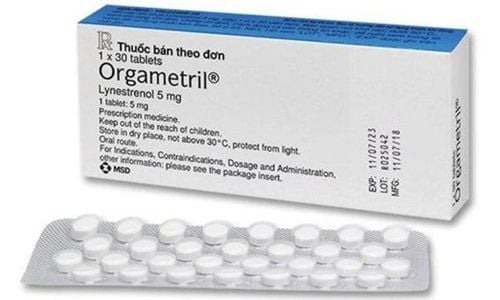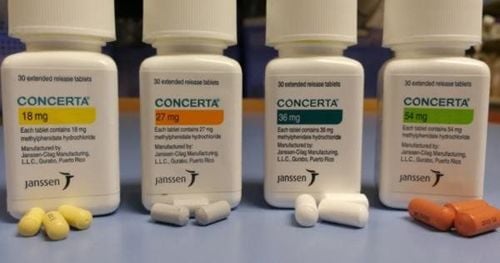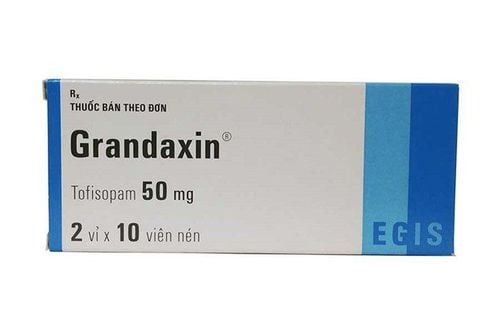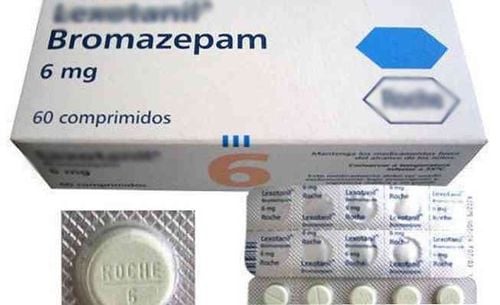Escivex 20 is a medication used in the treatment of anxiety and depressive disorders, with the active ingredient being Escitalopram. This drug is manufactured by Akum Drugs & Pharmaceuticals Ltd in India. Refer to the article below for answers to the question: "What are the effects of Escivex?".
1. What are the pharmacological effects of Escivex?
The active ingredient Escitalopram in Escivex is an antidepressant that works through the mechanism of selective serotonin reuptake inhibition (commonly known as SSRIs). Escivex is used for the treatment of depression resulting from mood disorders. The antidepressant effects, as well as the reduction of agitation and compulsion associated with Escitalopram, are believed to be related to its inhibition of Serotonin reuptake in the central nervous system. In vitro studies have shown that Escitalopram in Escivex strongly and selectively inhibits the reuptake of serotonin, while its effects on the reuptake of Norepinephrine and Dopamine are very weak.
Additionally, Escitalopram does not exhibit significant affinity for other receptors such as Adrenergic (including alpha-1, alpha-2, beta), Cholinergic, GABA, Dopaminergic, Histaminergic, or benzodiazepine receptors. The antagonistic effects on the aforementioned receptors are hypothesized to be associated with various effects, including anticholinergic, sedative, and cardiovascular effects, etc,... observed with many other psychotropic medications.
2. Indications and contraindications of Escivex
Escivex is primarily indicated for the treatment of anxiety disorders and depressive disorders.
However, there are certain cases where Escivex should not be used (contraindications), including:
- Allergy to Escitalopram or any of the components in the formulation;
- Contraindication for the concurrent use of Escivex with monoamine oxidase inhibitors (MAOIs).
3. Dosage of Escivex
The recommended dosage of Escivex for adults diagnosed with generalized anxiety disorder or depression is as follows:
- Initial dose: 10 mg (1/2 tablet of Escivex 20) taken once daily, which may be increased to 20 mg (1 tablet of Escivex 20) if necessary after at least one week of treatment;
- Maintenance dose: 10 to 20 mg (1/2 to 1 tablet of Escivex 20) taken once daily.
- Maximum recommended dose: 20 mg (1 tablet of Escivex 20) taken once daily.
- The recommended dosage of Escivex for elderly patients with depression is: 10 mg (1/2 tablet of Escivex 20) taken once daily.
For children aged 12 to 17 years:
- Initial dose: 10 mg (1/2 tablet of Escivex 20) taken once daily, which may be increased to 20 mg if necessary after at least three weeks of treatment;
- Maintenance dose: 10 to 20 mg taken once daily.
- Maximum dose: 20 mg (1 tablet of Escivex 20) taken once daily.
4. Side effects of Escivex
- Drowsiness;
- Dizziness;
- Mild nausea, belching, heartburn;
- Stomach discomfort;
- Constipation;
- Weight changes;
- Decreased libido, lack of energy, or difficulty achieving orgasm;
- Dry mouth;
- Prolonged yawning;
- Tinnitus.
5. Some precautions when using Escivex
Before using Escivex, patients should inform their doctor and pharmacist about the following issues:
- A history of previous allergies to Escitalopram, Citalopram, or any other medications;
- Currently using or having used within the past 14 days Pimozide or any monoamine oxidase inhibitors (MAOIs) such as Isocarboxazid, Phenelzine, Selegiline, and Tranylcypromine;
- Currently taking or planning to take any medications, vitamin supplements, or any other dietary supplements, especially anticoagulants such as Warfarin, Aspirin, and non-steroidal anti-inflammatory drugs (e.g. Ibuprofen and Naproxen) as well as Carbamazepine, Cimetidine, Ketoconazole, Lithium, the antibiotic Linezolid, medications for anxiety, neurological disorders, or anticonvulsants;
- Currently using migraine medications such as Almotriptan, Eletriptan, Frovatriptan, Naratriptan, Rizatriptan, Sumatriptan, and Zolmitriptan;
- Currently taking Metoprolol, other antidepressants such as Desipramine, Sedatives, Sibutramine, sleeping medications, tramadol, methylene blue, and tranquilizers. The doctor may need to adjust the dosage of Escivex or monitor for side effects.
In addition, escitalopram may cause drowsiness; therefore, users of Escivex should not drive or operate machinery until they are certain of how Escivex affects their body and whether it causes drowsiness. Alcohol can also increase the drowsiness caused by Escivex.
Individuals who should exercise caution before using Escivex include: the elderly, pregnant women, breastfeeding women, children under 15 years of age, individuals with liver or kidney failure, those with allergies to any component of Escivex, and patients with myasthenia gravis, hepatic coma, gastric ulcers, etc,...
6. Drug interactions of Escivex
Escivex may interact with any of the following medications:
- Buspirone;
- Lithium;
- Tryptophan (L-tryptophan);
- Anticoagulants such as warfarin;
- Migraine medications such as Sumatriptan and Rizatriptan;
- Pain relievers containing anesthetics such as Fentanyl or Tramadol.
To arrange an appointment, please call HOTLINE or make your reservation directly HERE. You may also download the MyVinmec app to schedule appointments faster and manage your reservations more conveniently.








